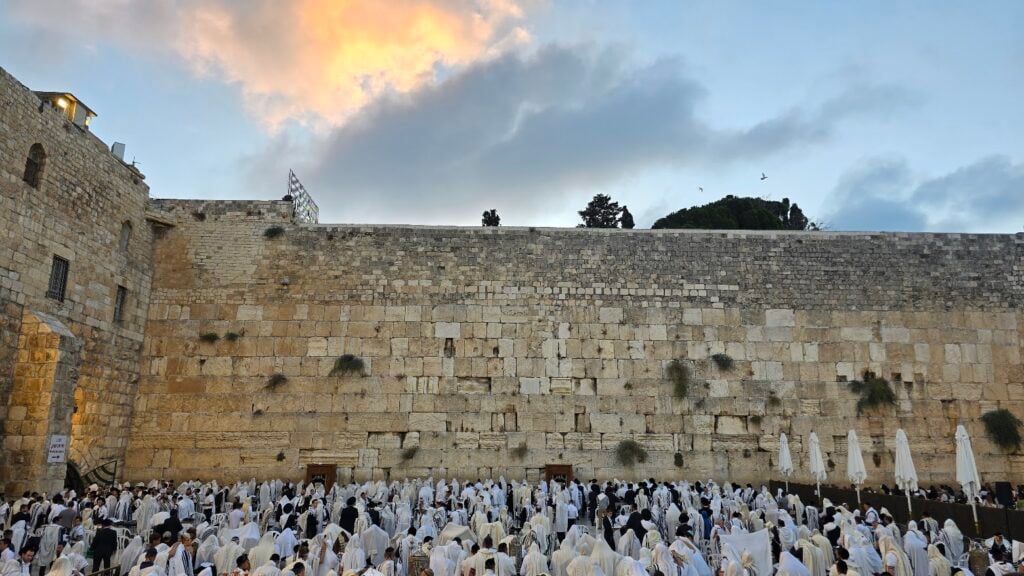
Mem Moment | Holiness for All!
Parashat Achrei Mot-Kedoshim
At the center of the Book of Leviticus we find this week’s parashah, Kedoshim, which begins with a command for the people to be holy: “You Shall be holy, for I, your God, am holy.” In The Torah: A Women’s Commentary*, Elyse Goldstein raises important questions: How can God command us to be holy? And how can we fulfil this commandment? This parashah contains a long list of laws and prohibitions, ranging from the realm of sacrifice to interpersonal relationships, to sexuality, to agriculture, and even the witchy (spoiler: ghosts and spirits are a no-go, unless it’s tequila). Some highlights include honoring parents, leaving some of the harvest for the poor, not holding a grudge, judging all people fairly, and not mixing two kinds of material in a garment. In reading this list, we see only that which we should or should not do, but the Torah does not tell us anything about what it means to be holy. How then, are we to fulfill this commandment?
We see in this Torah portion what my teacher, Dr. Tamara Eskenazi, calls “a democratization of holiness.” She suggests that the legal system described in Leviticus seeks to bring ordinary people closer to holiness, and therefore to God, by making distinctions and establishing guidelines and boundaries for behavior. Thus, holiness no longer belongs only to the priests who oversee the sacrifices, but to all the Israelites, since holiness now extends to all aspects of life. Through the list of commandments and restrictions that we see in this parashah, the Book of Leviticus reminds us that we all have access to the holy and that we all have a role to play in safeguarding holiness. Our actions in the world – intrapersonal, interpersonal, and those between us and God – have the power to transform us. In other words: The things that we do shape who we are. How can we be holy? By doing holy things.
How have your or another’s actions transformed you?
What’s one area of your life where you’d like to increase holiness?
*Available to purchase through CCAR Press or online through Sefaria